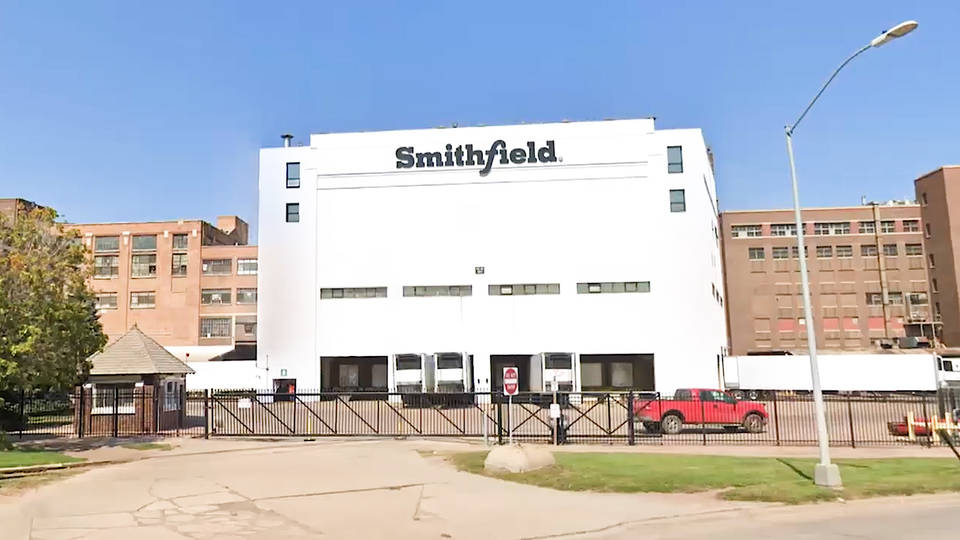HEADLINE APR 17, 2020

In South Dakota, the Centers for Disease Control and Prevention is investigating one of the largest pork processing plants in the world, where cases of COVID-19 related to the factory have surged to at least 730. The Smithfield plant in Sioux Falls is now the biggest single coronavirus hot spot in the United States. The mayor of Sioux Falls has ordered residents to shelter in place, after Republican Governor Kristi Noem refused to issue a statewide remain-at-home order.
THIS IS THE RESULT OF REPUBLICAN POLICIES FROM REAGANS DAYS WHEN THEY ALLOWED MEAT PACKING TO BREAK UNION CONTRACTS AND BRING IN FOREIGN WORKERS ON SO CALLED PERMIT WORK, WHICH MEANT THEY PAID THEM MINIMUM WAGE OR BELOW!!!!!! BUT THE WORKERS OF COURSE STAYED AND DID NOT GO BACK, TO MEXICO, ECUADOR, GUATAMALA, ETC.
REAGAN REDUCED RED TAPE BY REMOVING SAFETY REGULATIONS, REDUCING INSPECTIONS AND INSPECTORS AND ALLOWING THE INDUSTRY TO VOLUNTARILY SELF REGULATE WITHIN A YEAR THERE WAS A VIRULENT E-COLI BREAKOUT IN THE USA THAT THEY ATTEMPTED TO CLAIM CAME FROM CANADIAN BEEF. IT HAPPENED AGAIN A YEAR LATER WITH JACK IN THE BOX RESTAURANTS THE CANADIAN BEEF TROPE DID NOT WORK THAT TIME.
THIS WAS THE RESTRUCTURING OF THE MEAT PACKING INDUSTRY IN NORTH AMERICA, CANADA WAS IMPACTED AS WELL, AS CONSOLIDATION IN THE INDUSTRY MEANT FEWER AND FEWER PLAYERS UNTIL TODAY THE BIGGEST MONOPOLY MEAT PACKER IN NORTH AMERICA IS JBS FROM BRAZIL.
THIS IS NOT THE ONLY PLANT IN THE AMERICAN FARMING BELT, AND IT IS NOT THE ONLY ONE THAT WILL BE IMPACTED.
FOR MORE ON THIS SEE
SEE
https://plawiuk.blogspot.com/search?q=SMITHFIELD
https://plawiuk.blogspot.com/search?q=TYSON
https://plawiuk.blogspot.com/search?q=MEAT+PACKING
https://plawiuk.blogspot.com/search?q=COVID19
https://plawiuk.blogspot.com/search?q=JBS
FOR MORE ON THIS SEE
SEE
https://plawiuk.blogspot.com/search?q=SMITHFIELD
https://plawiuk.blogspot.com/search?q=TYSON
https://plawiuk.blogspot.com/search?q=MEAT+PACKING
https://plawiuk.blogspot.com/search?q=JBS














